Poetry of praise for the grace that God freely provides at every moment of our lives.
Paperback: $9.99 | Kindle: $9.99
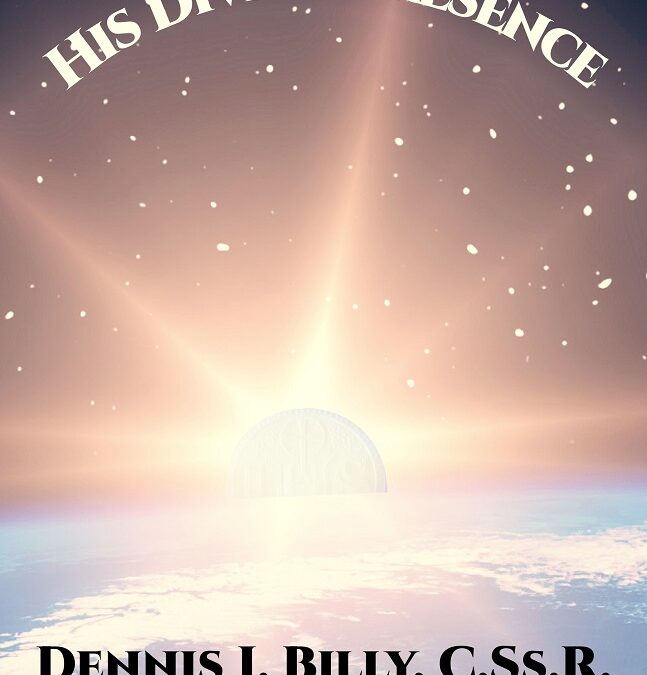
Poetry of praise for the grace that God freely provides at every moment of our lives.
Paperback: $9.99 | Kindle: $9.99
“A dancer took off her makeup and costume and asked, “What more is there to life?” A woman who walked the catwalk answered the same question. Both of them became contemplative nuns. The author of His Divine Presence invites us to ponder ‘Who’ exists when the makeup, the dressing up, the busyness of life, the noise and the activities all cease.” – Francis Etheredge, author of The Prayerful Kiss, The Family on Pilgrimage, and Honest Rust and Gold
”Scholar, author, and poet Rev. Dennis J. Billy (C.Ss.R.), with his new book His Divine Presence, gives us a deeply personal collection of poems that encourages us to focus more clearly on the gifts that God has freely bestowed upon us in this life but not to lose sight of this life’s true goal of sharing eternity with Him. The poem that gives the name to the entire book is particularly noteworthy in that it profoundly shows us the vast extent of God’s blessings that He has given to all of us. There are also poems that are deep and meaningful exhortations to trust in God’s love and goodness along with others that urge us to prepare ourselves gladly for an eternity with Him. These are thus poems that help us to contemplate His Divine Presence with joy, both in the life of this world and in the life to come.” – Charles Rex, author of It Is My Soul That Sings
“Fr. Billy’s poems open part of the contemplative process behind faith. We see the human, priestly mind counselling, reflecting, confessing, advising and doubting in targeted expression. His faith is palpable in this writing that connects the inner self in the world to God and to others. It highlights the sacramental nature of God’s church.” – Larry Hopperton, author of Table for Three and Such Common Stories
“Fr. Dennis Billy’s poetry will guide you to the cloud of unknowing and into silent awe, and your soul will smile and your heart will dance!” – Joe Avalos, author of Cry Oneness

Fr. Dennis J. Billy, C.Ss.R., is Professor Emeritus of the history of moral theology and Christian spirituality at the Alphonsian Academy of the Pontifical Lateran University in Rome and currently serves as The Robert F. Leavitt Distinguished Service Chair in Theology at St. Mary’s Seminary & University in Baltimore. An American Redemptorist of the Baltimore Province, Fr. Billy has advanced degrees from Harvard University, the Pontifical University of St. Thomas (Angelicum), and the Graduate Theological Foundation. The author of numerous books and articles on a variety of religious topics, he is also active in his order’s retreat apostolate and in the ministry of spiritual direction.
The page you requested could not be found. Try refining your search, or use the navigation above to locate the post.
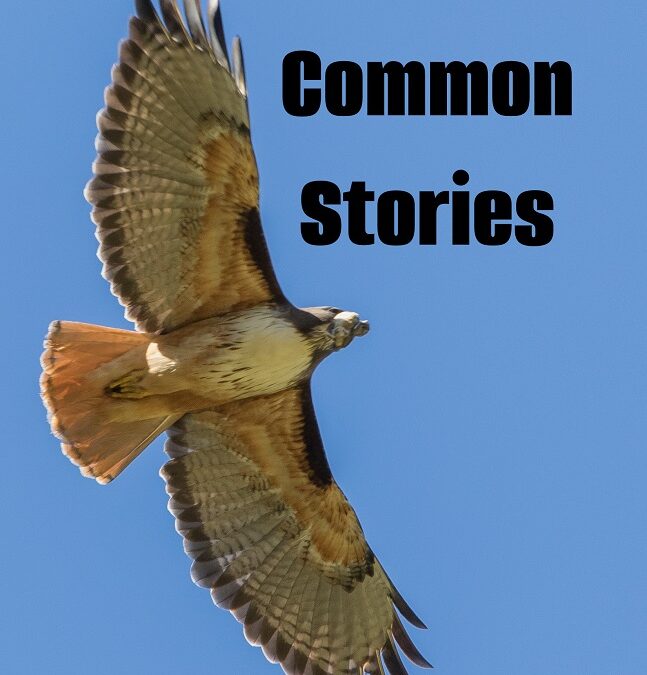
There is one story only. It’s woven out of personal experiences and memories, the worlds that we have actually known and loved. The poems in Such Common Stories connect to our individual stories, so that the experiences they present become our own and we become the storytellers of our own multifaceted lives.
Paperback: $14.95 USD | Kindle $9.99 USD
Agape Review, March 2022
Open Door Poetry Magazine, April 2021
“Larry Hopperton’s poetry turns upon the correspondences and tensions between the spiritual and natural realms and how human joy, grief and hope partake of both worlds. In Such Common Stories he further dissects that dialectic, drawing the reader forward with such a persuasive forward momentum that if you don’t take time to consider his images and metaphors in detail you may miss how apt and illuminating they are. Take the time to let these poems work their magic.” – Andrew Brooks, author of One Country After
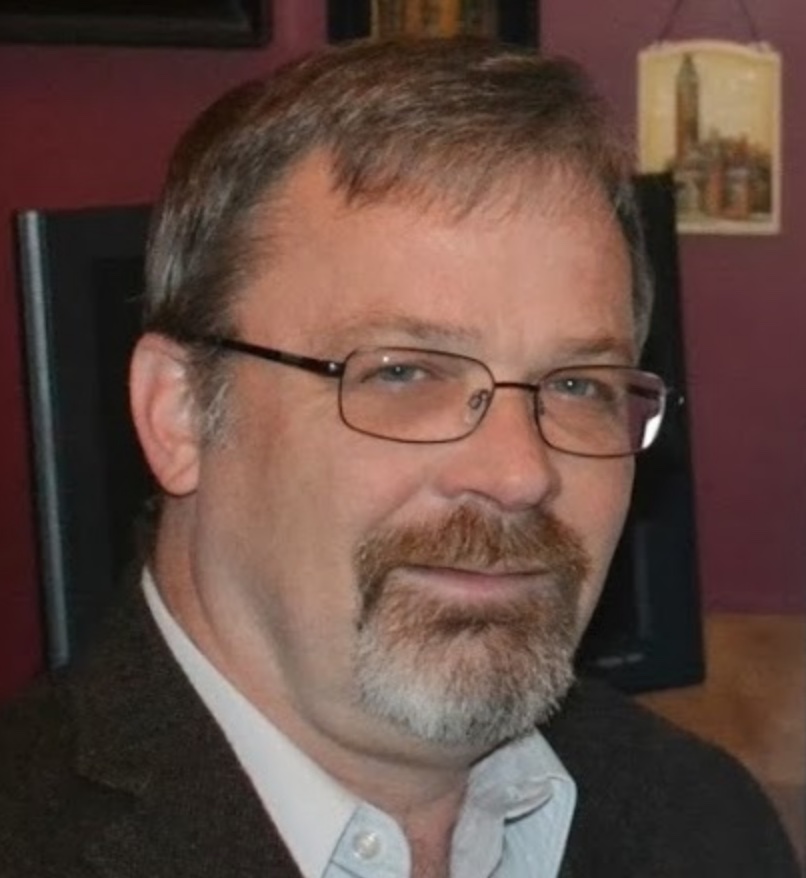 Lawrence Hopperton lives in the town of Stouffville, Ontario. He is a former editor of the University of Toronto Review and one of the founding editors of Nimbus Press. His poetry has been published internationally, most recently in Tamracks: Canadian Poetry for the 21’st Century, and the Lummox Press anthology, Sirsee, Sheila-na-gi. Smeuse and Pocket Change. He has published two chapbooks, Song of Orkney and Other Poems in 1983, and Ptolley Bay in 2013. In his non-poetry life, he has authored three college textbooks, and he was the founding director of the Center for Distributed Learning at Tyndale University and Seminary.
Lawrence Hopperton lives in the town of Stouffville, Ontario. He is a former editor of the University of Toronto Review and one of the founding editors of Nimbus Press. His poetry has been published internationally, most recently in Tamracks: Canadian Poetry for the 21’st Century, and the Lummox Press anthology, Sirsee, Sheila-na-gi. Smeuse and Pocket Change. He has published two chapbooks, Song of Orkney and Other Poems in 1983, and Ptolley Bay in 2013. In his non-poetry life, he has authored three college textbooks, and he was the founding director of the Center for Distributed Learning at Tyndale University and Seminary.
The page you requested could not be found. Try refining your search, or use the navigation above to locate the post.
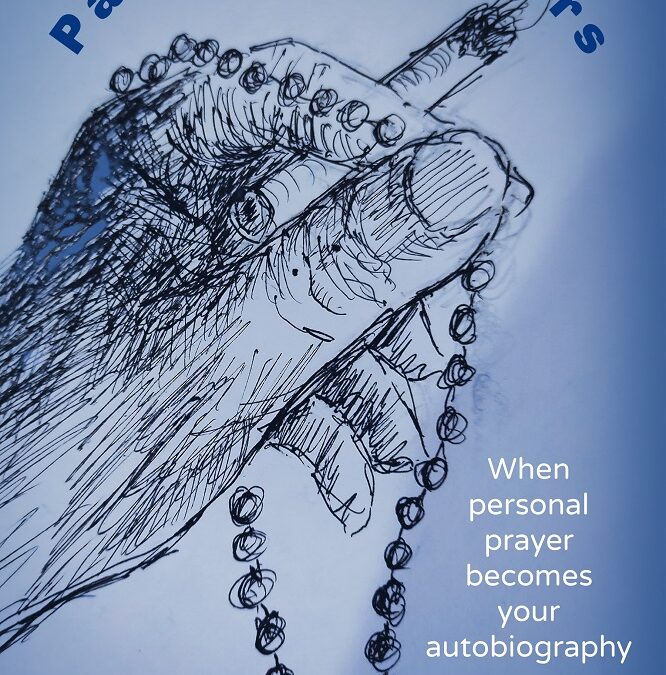

Kalia confessed to murder last night amid a hushed silence that lasted only a short while before he went into detailed account of the events that led to it . . .
Thus begins one of the prayers in this book.
This is a book of prayers that tell a story. But, of course, all prayers – all personal prayers – tell stories. Prayer is, in many ways, the spiritualization of incident, and in every fervent prayer one can find a short story of an epic sticking to it. The Mumbai pavement is wonderfully rich in story. For every twenty-or-so-steps that you take over it, your feet could be shuffling through chapters, or, perhaps, volumes of intricate plot, moving human drama and the most thrilling narrative. This book is those twenty-or-so-steps of narrative and plot, the story of a pavement dweller and his patch of pavement told in the most intimate form of narration: his personal prayer.
Paperback: $14.95 | Kindle: $9.99
“Ivan Arthur has produced a beautifully written book of intimate prayers which touch the inner spirit at every ‘reading.'” – Sr. Marianne Postiglione, RSM, retired Associate Director, Institute for Theological Encounter with Science and Technology
“While Pope Francis was exhorting us to tell stories as a way to evangelize, Ivan Arthur was showing us how to tell stories as a way to pray.” – Dr. Sebastian Mahfood, OP, author of The Narrative Spirituality of Dante’s Divine Comedy

Ivan Arthur is the author of seven previous books:
Arthur was inducted into the Hall of Fame of the Communication Arts Guild, Mumbai, and is a three-times recipient of the WPP Atticus Award for original writing. He lives in Goa, India, with Ingrid, his wife.
The page you requested could not be found. Try refining your search, or use the navigation above to locate the post.
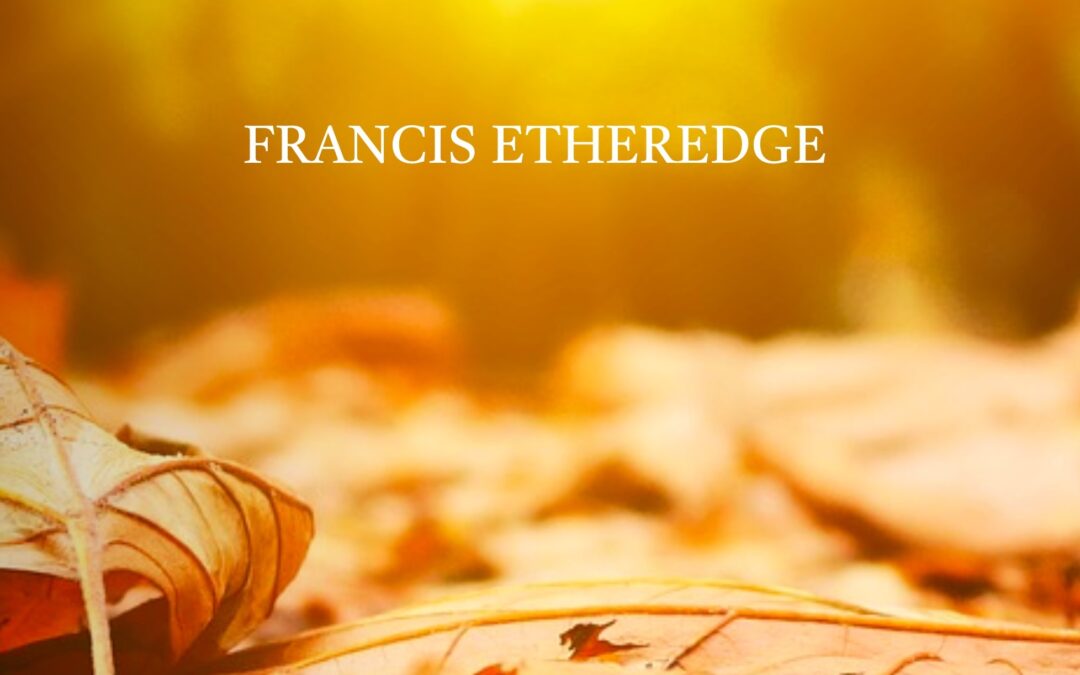
Paperback: $17.95 | Kindle $9.99
Acknowledgements
Foreword: Bishop Fintan Monahan of Killaloe Diocese, Ireland
General Introduction
Part I: Before
Nothing
Osmosis
Beginning
Guest Poet and Poem: Ravi Shankar
The Three Christs
-for Doug Andersen
Part II: Awareness
Guest Poet and Poem: Russell Rogers
Where is He?
A Trilogy of Cases:
Part I: Locked
Part II: Naked
Part III: Rat-to-Bird
Sharing
Flowers
The Picture
Vulnerable
News
A Trilogy of Tones:
Black
White
Grey
Awakening
Guest Poet and Poem: Fr. Antoine Altieri:
La Grand Santé (Great Health)
Part III: Technological Leaping
Skin Deep
Flitting
Phoneheads
Guest Poet and Poem: Richard Bowdery
Nomophobia No More
Part IV: Grace
Denatured
Boiling Point
Changing
You and I
Aftermath
Guest Poet and Poem: Annabelle Moseley
A Prayer for Setting the Table
For Annabelle Black, in honor of her 100th Birthday
Part V: The Sacraments
Bread of Love, Wine of Glory
Immersion
Regenerative
Part I: A Ringed Pair
Part II: Whirlpools
Part I: The Priest-Shepherd
Part II: The Domestic Shepherd
Guest Poet and Poem: Teresa J. Herbic
Marks of Eternity
Part VI: Writing
Words Torn from Tears
A Pain-Breaking Word
Failure’s Fog
Clots
Gaps
Soundings
Matter
Guest Poet and Poem: Dr. Mary Anne Urlakis
The Empty Lot
Part VII: After
Three times – Now a Fourth, Fifth and Sixth:
Part I: Dying…
Part II: The Plight of All
Part III (I): Visiting
Part III (II): The Plight of Passing
Part IV: He was Among Us
Part V: One Life Uprooted
Immobile
Comfort
Unreachable
Guest Poet and Poem: James Sale
Could I But
Epilogue
End Word: John O’Brien, Frater at OFM (Franciscan)
“How great is your name, O Lord our God, through all the earth.”

“I was recommended this book by a friend. It’s a series of Poetry & Prose both from the author & guest writers. There is a brief introduction of the guest writer which gives an insight into their faith & perception on life. The book is laid out in individual topics and of a life that anyone of us might face. I would also say that they could be used as prayer in some instances. Sometimes, it’s hard to put prayer into words, but these writings bring the concept of Christ and God a little closer to ourselves. These are also reflections on life, family, friends and times enjoyable or times of sorrow. The book is an easy read and the pieces are thought provoking & inspiring. Also, the honesty of the author about his path to faith and how it was achieved can encourage others who are still unsure about themselves. One piece that inspired me was: ‘Sitting in front of the cross of Christ I realised that He was immobilised, pinned to it by nails, metal, wood & wounds as unforgiving as deterioration due to illness & injustice. Pray for us to remember them; & in remembering them, I beg you to help them.'” – Gillian Cockwill
“Our times can be described as one enthralled by the quickening, with the passing of time seemingly accelerating amid the buzz of modern technology. In Honest Rust and Gold, Francis Etheredge and his guest writers offer heartfelt poetry as a means to pause and make sense of our hectic world – and indeed, ourselves. Underlining the many penetrating themes encompassed throughout this work is a sense of vulnerability, which for the Christian is a reminder of our constant need to trust and lean on God, especially when we are hurting. As Etheredge reflects in the introduction to the poem “Bread of Love, Wine of Glory,” “God is not remote […] but is so close as to take into Himself all our pain.” Honest Rust and Gold provides a beautiful collection of faith-filled poems for anyone seeking a spiritual oasis of consolation. — Eric Manuel Torres, BHlthSci, MOrthoptics (LaTrobe), MNSc (Melb), GradDipTheol, MTS (CTC/UDiv), CertIIIBAdmin (S.Russo), AOBR, MOA, RN, Assoc. Member CMAV. Catholic theologian and bioethicist.
“In Attention and Will, Simone Weil stated ‘Attention, taken to its highest degree, is the same thing as prayer. It presupposes faith and love.’ This insight has never been better realized than in Francis Etheredge’s transcendent Honest Rust and Gold: A Second Collection of Prose and Poetry. Just reading this exceptional collection of poetry and prose is a spiritual experience that brings us closer to the infinite beauty of God.” — Gordon Nary, Editor of Profiles in Catholicism
“How heavy and uninviting the term “lay spirituality” can seem! But what if it were written by a poet-theologian who could present needed insights in images so beautiful you couldn’t resist the invitation to grow. On marriage, for example, this very realistic part will help any who can’t stand just looking at ideal couples and feeling rotten in comparison! Honest Rust and Gold: A Second Collection of Prose and Poetry is deep, incisive, penetrating! Get it! Read it!” — Ronda Chervin, Emerita Professor of Philosophy at Holy Apostles College and Seminary, author of more than fifty books about spirituality, presenter on TV and Radio.
“This is an excellent book of personal heartfelt reflections and poems that have awakened in me strong feelings and deep thoughts about many similar life experiences lived, explored and shared by the author. His prose and poetry have inspired me to think and feel my own life’s journey, with its challenges, hardships, joys and sorrows. Every reader will relive their life’s experiences, for that is the power of poetry.His meaningful prose and poetry covers a wide range of human experiences and relevant truths today. It is about existence, the meaning of life, family love, the problem of evil, COVID-19, homelessness, technology and its influence on mankind today and much more. His images are moving. A dew drop hanging on a blade of grass, brings us close to the beauty of nature and God. Francis Etheredge has given us a gem in Honest Rust and Gold: A Second Collection of Prose and Poetry, to be treasured and read many times.” — Shay Cullen, www.preda.org
“Everyone sees life a bit differently. Much in the same way, everyone reads a book a bit differently. In being granted the opportunity to review Honest Rust and Gold – A Second Collection of Prose and Poetry, I was struck by the depth and thoughtfully piercing nature of this book. In the General Introduction, the author writes, ‘Maybe this book is like that moment of stepping out of the busyness of life in order to notice what is around us.’ That was, in fact, my experience with this book. It is a ‘stepping out’ but also a ‘stepping up’ to consider greater things, deeper things, more profound things. It is a challenge to touch life, even when it’s a bit dangerous to do so. To explore life knowing that to embark on such a journey is to risk being changed by the journey. And to ask questions that may reveal within us that which we prefer to hold in the shadows. The blend of prose and poetry lends a gentle depth and enhanced flavor to each chapter. If you wish to notice what is around you in order to transform that which is within you, this book will certainly assist in that endeavor.” — Craig D. Lounsbrough, M.Div., LPC craiglpc4@gmail.com, www.craiglpc.com
“Personally, reading this book was like visiting an art gallery; viewing each piece of work as unique, yet part of an overall collection. Each poem, or work, a separate portrait; overall a collection of very detailed portraits of the life of the author. Nothing is hidden. Even the most painful moments of his life are laid bare or ‘Naked’ – one of his works. ‘Failure’s Fog’ is a very moving account of the author’s journey. Etheredge takes his readers on a guided tour of his work, giving a personal insight into his lifelong pilgrimage. He is unafraid to show readers the truth. Each piece of work is intricately linked to the other, with thoughtful and compelling additions from guest artists. On closing the book, I felt as if I’d attended a beautiful yet haunting exhibition that left me pondering the meaning of life. The Christian walk isn’t always easy, but God is always with us. Ever present, His grace sees us through the most desperate and vulnerable moments of our lives. Honest Rust and Gold is a powerful testimony of this truth. Themes include: covid-19, God, death, vocation, meaning in life, abortion, suicide, marriage, family, faith, loneliness, emptiness, brokenness, nature, wisdom, finding purpose in life, failure, angst, poverty, and the dislocation between our own existence and that of others. Etheredge tells us, ‘the book is a dialogue between grace and nature’. I highly recommend reading Honest Rust and Gold, especially if you enjoyed reading The Prayerful Kiss and The Family on Pilgrimage by the same author. ‘… leaving is very different from being left behind.’ (Etheredge) — Kelly Jayne Lazell
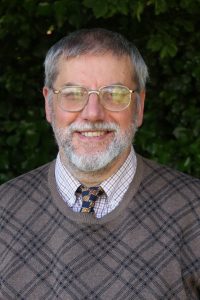 Mr. Francis Etheredge is married with eight children, plus three in heaven.
Mr. Francis Etheredge is married with eight children, plus three in heaven.
Francis is currently a freelance writer and speaker and his “Posts” on LinkedIn can be viewed here. Poetry; short articles; autobiographical blog; excerpts from books; and “Philosophize: A Ten Minute Write.”
For a list of all of Francis’ books published by En Route Books and Media, click here.
See Francis’ other books, too, entitled Scripture: A Unique Word, From Truth and truth: Volume I-Faithful Reason, From Truth and truth: Volume II: Faith and Reason in Dialogue, From Truth and truth: Volume III: Faith is Married Reason.
He has earned a BA Div (Hons), MA in Catholic Theology, PGC in Biblical Studies, PGC in Higher Education, and an MA in Marriage and Family (Distinction).
Enjoy these additional articles by Francis Etheredge:
The page you requested could not be found. Try refining your search, or use the navigation above to locate the post.
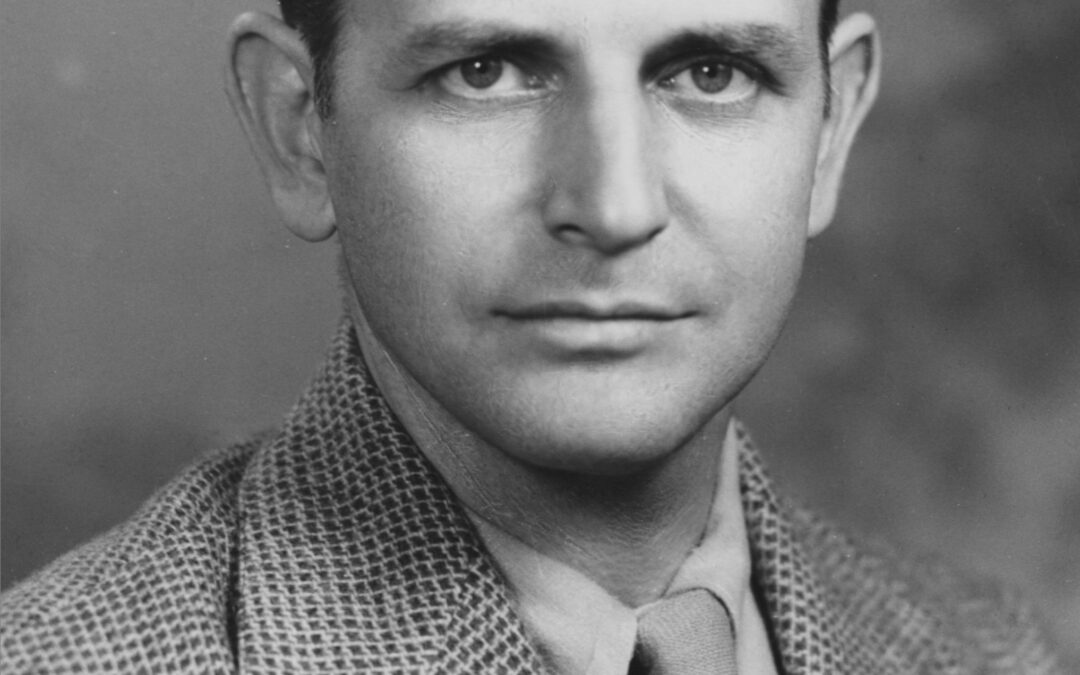
Poet and composer Charles Gordon Rex’s style of writing, finally being published in the 21st Century, is that of a bygone era. He was the product of the first half of the Twentieth Century with the bulk of his works being written in the 1930s and 1940s. His preferred form was the venerable sonnet. For other forms, a major influence was the poetry of A. E. Housman, many of whose poems Rex as a composer set to music. Thus, it is unfortunate that during his own lifetime, he rarely bothered with the publication of either his poetry or his music. It is the hope of the editor that this volume will help fill the void Charles Gordon Rex left behind and that lovers of poetry will enjoy his work as represented in this collection.
Paperback $19.95 | Kindle $9.99 | Hardback: $29.95
“Charles Rex, Jr., has compiled and introduced this volume of his father’s poetry, a fitting tribute to the many aspects of life that touch and help us in our own dialogue of faith and experience. The work is all the more extraordinary in view of the limits the author overcame; as Charles Gordon Rex says of himself: ‘My body, broken, would have tried to bind me/ Had not my mind reached out to nobler things./ Now I am conscious of nought else but beauty;/ Forgetting self, it is my soul that sings’ (from “Listen to My Song”). The work pauses at a piece called ‘Jesus of Nazareth’ and brings to the fore the background of Christian Faith which, like a fellow wrestler, wrestled with him throughout his life. One of my favourite pieces is “The Last Bloom,” the longest and the more beautiful for its bare honesty and pain; but, by way of a counterpoint, there are touching lines about one of his children: ‘I wait the sound of a quick light tread’ (from “Little Feet”) and the many glistening moments of his turn to love and to nature. Charles Rex, Jr., has compiled and introduced this volume of his father’s poetry, a fitting tribute to the many aspects of life that touch and help us in our own dialogue of faith and experience. In his verse, there is a kind of melancholy theme of being alone which surfaces intermittently, allowing the reader to appreciate that in addition to the poet’s wrestling with physical trials, he wrestled with loneliness, fear, and love. His romantic works are not without suffering and to which, in a sense, the song is an answer and even an antidote!” —Francis Etheredge, author of The Prayerful Kiss and Honest Rust and Gold.
“The act of putting together the lost poems of one’s deceased father into a book to be read by new eyes, as Charles Gordon Rex, Jr., a shining musical light of the philharmonic has done, is in itself a poem: one that tells the story of a son whose agapic love transcends years, pain, and loss. And what soul sings? The poet’s? The reader’s? That question is for each gentle reader to decide. But one thing is clear: through this generational act of mending what was once lost, the editor of this collection’s soul surely sings.” —Annabelle Moseley, Award-Winning Poet and author of Sacred Braille and Our House of the Sacred Heart
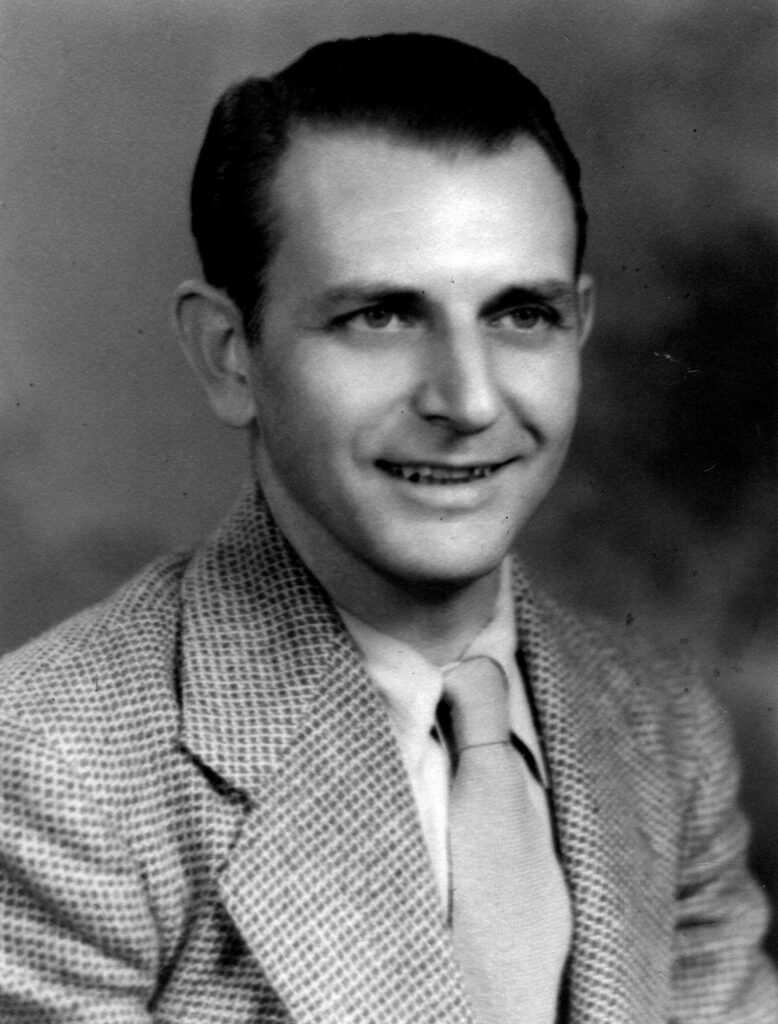
Charles Gordon Rex was born in Springfield, Massachusetts, on June 20, 1909, into a family of nine brothers and sisters. His father, Charles George Rex, an immigrant from England, was a carpenter who worked on some of Springfield’s largest buildings. Ill health struck early in the younger Charles’ life when at the age of three he came down with polio which left him paralyzed from the waist down and partially paralyzed in his right hand, thereby virtually confining him to a wheelchair for most of his life, although for a time he was able to use heavy braces and crutches. However, the polio had also caused severe scoliosis of his spine with the result that he was often in great pain. In spite of these handicaps, it became obvious in childhood that he was gifted with extraordinary intelligence and musical ability, but due to the complete lack of educational facilities for the handicapped in his area, his early schooling and musical studies were virtually self-taught. Nonetheless, he was an avid reader from an early age and started writing poetry in his teenage years. He managed to learn piano and violin and acquired a remarkable amount of proficiency on these instruments in spite of the partial paralysis of his right hand, enough so that he played violin as a member of a local orchestra.
However it was in his vocal abilities that he first achieved success. With the financial backing of a patron of the arts who recognized his talent, he studied voice in Springfield with RCA Victor recording artist Royal Dadmun for five years starting at the age of eighteen. At this time, Rex started writing poetry, a handwritten note on a penciled manuscript revealing that his first poem was “The Thrush’s Song,” written in 1928. He later started giving solo vocal recitals as a baritone, earning praise from newspaper critics for his “volume and unusual beauty of tone.” Dadmun himself wrote to him, “I count on you as an exponent of whatever value my ideas may have.” Rex was also a vocal soloist for the Travelers Insurance Symphony Orchestra under conductor Moshe Paranov, co-founder and dean of the Hartt School of Music, on WTIC AM radio out of Hartford, Connecticut for the NBC Red Radio Network.
In 1935, he married his first wife, Miriam, and moved to New York City where he studied voice with well-known vocal instructor Alfredo Martino who later made him his first assistant. Eventually Rex had his own studio and an assistant teacher through Martino’s helpfulness and also collaborated on a book with Martino entitled “Today’s Singing.” According to personal notes, Rex also often went through periods where he would write a poem a day, a favorite form being the sonnet.
His ultimate ambition being music composition, however, he came to the conclusion that he needed a formal education, and so, with no previous academic schooling, he finished high school in nine months and entered Amherst College, where he was a member of Theta Xi national social fraternity and Pi Kappa Lambda Honor Society. There he studied with American composer Ross Finney. Rex later transferred to Rollins College in Winter Park, Florida, where after a little over three years he graduated in 1946 with both Bachelor of Music and Bachelor of Arts degrees while sustaining a 98% grade-point average as well as winning the college’s highest award, the Algernon Sydney Sullivan Award for outstanding achievement. After graduation, he became part of the music faculty of Rollins College for two years. During this time, he was also involved in a weekly radio program of dramatized plays for children for which he composed the music and acted.
After a divorce, Rex married his second wife, Betty, in 1948 with whom he had three children. In the early 1950s, he was director of bands and choruses for the Mt. Dora High School in Florida while continuing to compose music and poetry. However, increasing ill-health during this time started severely curtailing his musical activities with the result that after fulfilling some isolated commissions from the Florida Symphony and composing some short piano works, his musical life had to virtually cease, although he still continued to write poetry. In 1964, he developed colon cancer that was cured by surgery. In 1966, the family broke up, and Rex moved to Tallahassee, Florida to be near one of his sons who was attending Florida State University. Suffering from increasing depression, he barely survived a suicide attempt in August of 1970. After his recovery, he still continued to write poetry. He ultimately moved back to Springfield in 1972 and died of a stroke on April 23, 1973.
Charles Gordon Rex’s children, Charles, Jr., Christopher, and Cathy, have carried on their father’s musical tradition. Charles Rex (Jr.) became a concert violinist and was a first violinist in the Philadelphia Orchestra under Eugene Ormandy after graduating from Florida State University on a full scholarship. He was later the Associate Concertmaster of the New York Philharmonic under Zubin Mehta and Leonard Bernstein as well as serving as interim Concertmaster of the London Symphony Orchestra on a concert tour of England under Sir Colin Davis. For a sample performance, see Instant Encore’s collection.
Christopher Rex became a cellist and was also in the Philadelphia Orchestra after graduating from the Curtis Conservatory. He later became the Principal Cellist of the Atlanta Symphony under Robert Shaw and Robert Spano, and also served as substitute Principle Cellist of the New York Philharmonic on a European concert tour by the NYP under Maestro Mehta. Cathy Rex was proficient on piano but decided not go into music professionally.
The page you requested could not be found. Try refining your search, or use the navigation above to locate the post.
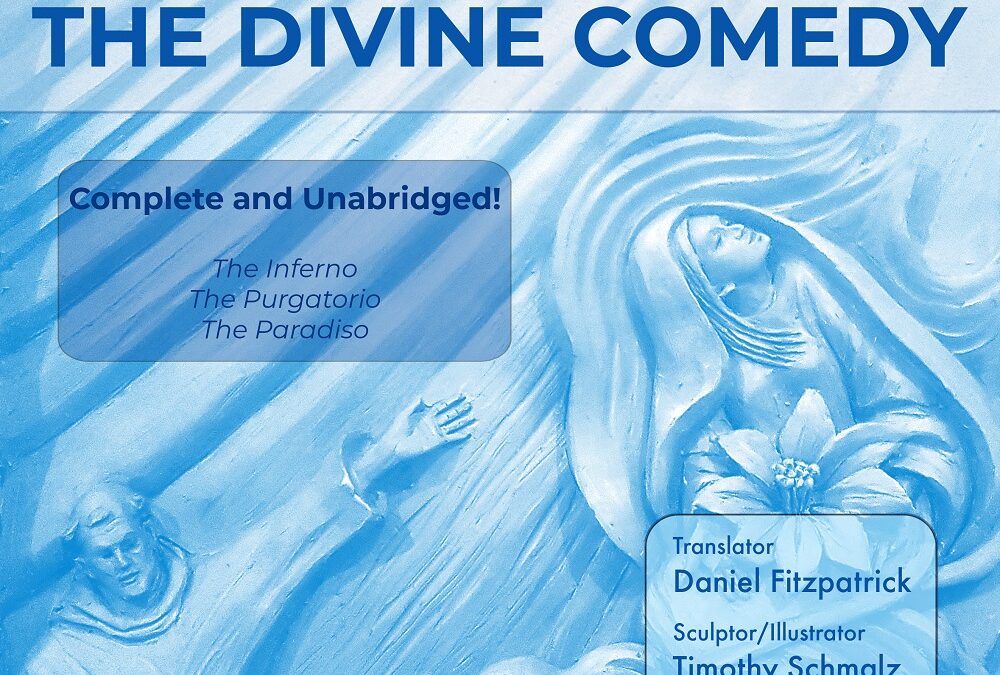
“Fitzpatrick’s is a translation that first and foremost honors Dante through a willingness to be literal. This is Dante’s poem, and so the translator lets the poet speak and signify through English words that match the Italian ones. But that restriction provokes Fitzpatrick to be all the more lyrically resourceful as the verse is lovely and the diction is lucid.” – Dr. Andrew Moran, Professor of English, University of Dallas
“Marvelous–clear and direct in Dante’s way without sacrificing beauty of language.” – Dr. Gregory Roper, Associate Professor of English, Department Chair, and Director of the Shakespeare in Italy program at the University of Dallas
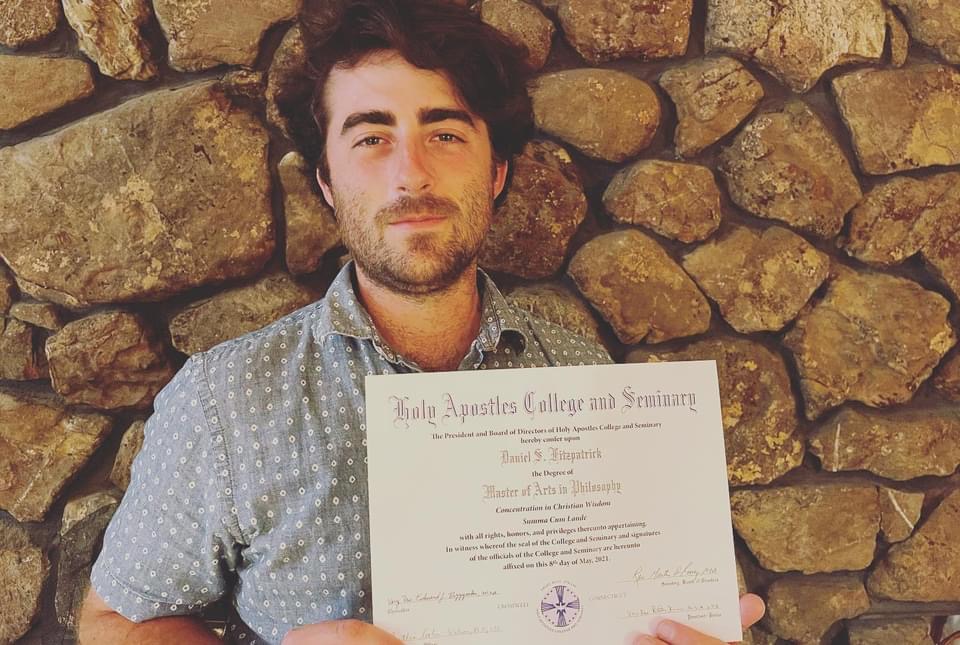
Translator Danny Fitzpatrick graduated with his MA in Philosophy from Holy Apostles College & Seminary on May 8, 2021.
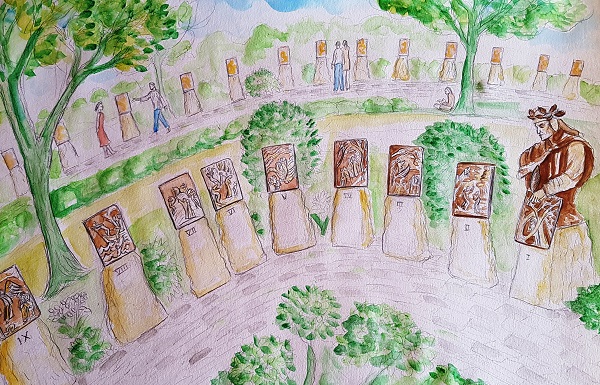
Dante Alighieri began writing his Comedy, which traces a pilgrim’s progress to our true home in heaven, in the year 1308 and completed the work in the year 1320, publishing the final canticle in 1321, the same year he died. The Comedy begins in a Dark Wood of Despair and ends with the Beatific vision as Dante enters fully into the mind of God.
In this new translation, written in this interim septuacentennial anniversary period between completion and publication, and beautifully illustrated with the sculptures of Timothy Schmalz, Daniel Fitzpatrick makes the work accessible to the 21st century reader in celebration of Dante’s septuacentennial anniversary.
The translation and artwork was distributed via email at the pace of two cantos per week (Wednesdays and Sundays) beginning on March 25, 2020, the first Dantedì, a day dedicated by the Italian government to celebrate the accomplishments of the Florentine poet, and was completed on March 25, 2021, in time for the celebration of the septuacentennial. Those who donated $250 or more received this holographic crystal designed by Timothy Schmalz.
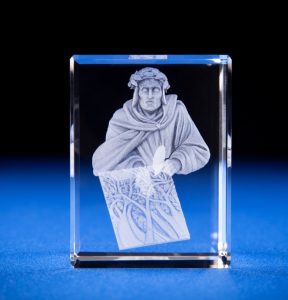
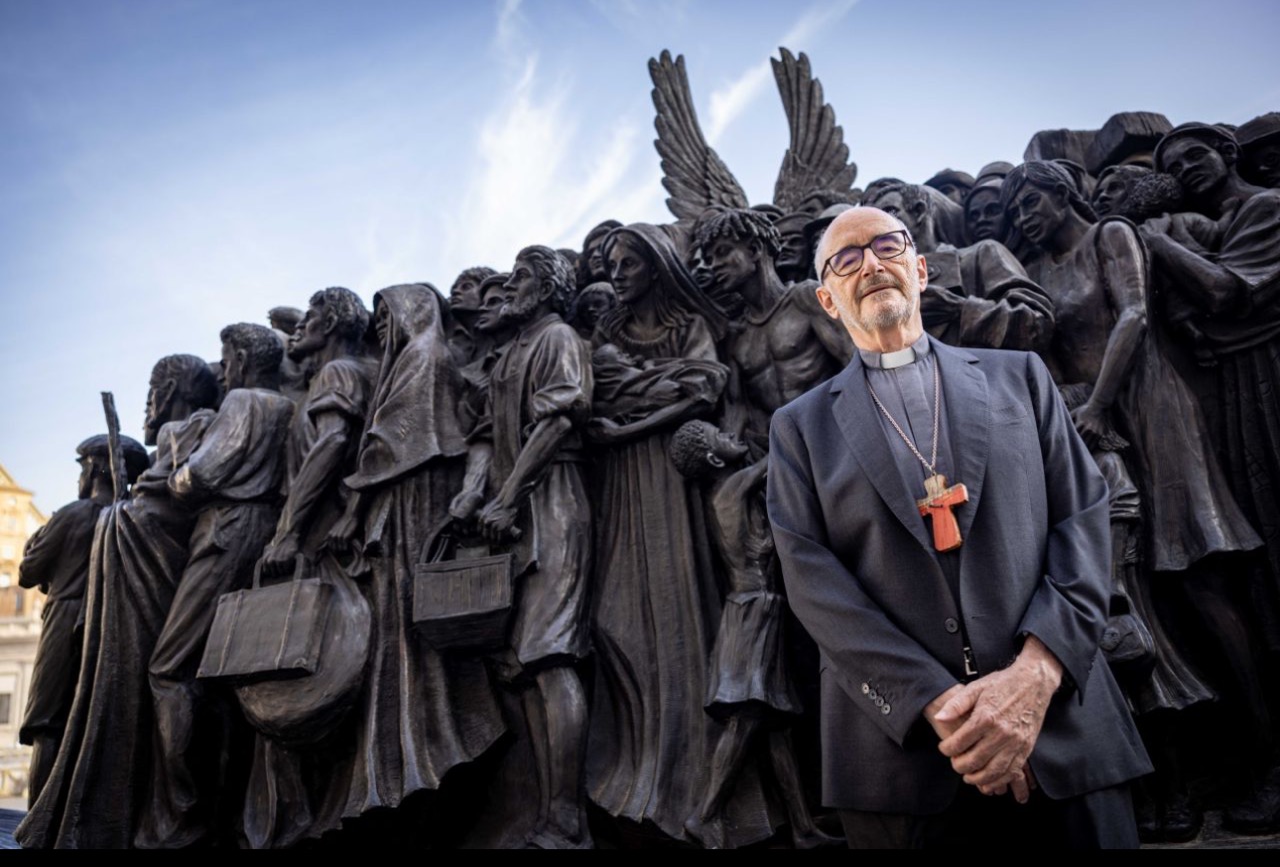
Pictured above in front of “Angels Unawares,” a sculpture by Timothy Schmalz, Cardinal Michael Czerny, Prefect of the Dicastery for Promoting Integral Human Development, to whom the proceeds from the project were forwarded to provide assistance to migrants and refugees during Covid. From one time of plague to another, Dante’s legacy offered support.


The Dark Wood – March 25, 2020
to
The Mind of God – March 25, 2021
For over 25 years, Timothy Schmalz has been sculpting large scale sculptures. He is a figurative artist with his pieces installed worldwide. Some of his most reputed pieces are installed in historical churches in Rome and at the Vatican. Timothy describes his most important work as visual translations of the Bible. In this sculpture collection, Timothy provides visual translations of one of the greatest love poems Italy ever produced. Visit Timothy’s website today! https://www.sculpturebytps.com/
Giangravé, Claire. “Catholic sculptor re-creating Dante’s ‘Divine Comedy’ aims to shift the emphasis off hell.” Religion News Service. July 21, 2020. Read the article here.
Hanson, Aprille. “Arkansas translator hopes new project will support hospital.” Arkansas Catholic. May 5, 2020. Read the article here.
Editorial. “Inspired by Dante, Alumnus Raises Funds for Italian Hospital.” The University of Dallas. April 6, 2020. Read the article here.
Editorial. “The Dante 700 Project by Timothy Schmalz.” La Gazzetta Italiana. April, 2020. Read the article here.
Schiffer, Kathy. “Celebrate Dante and Help Fight the Coronavirus: New sculptures and a new translation bring Dante’s Divine Comedy to life.” National Catholic Register. March 30, 2020. Read the article here.
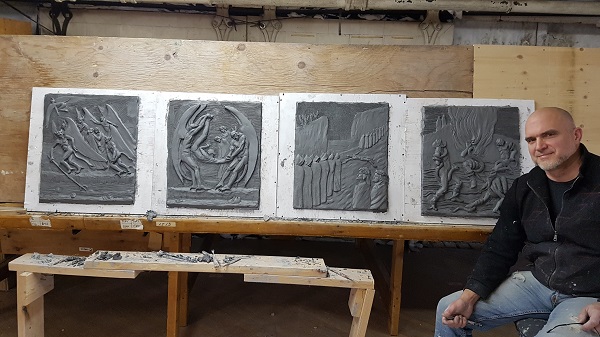
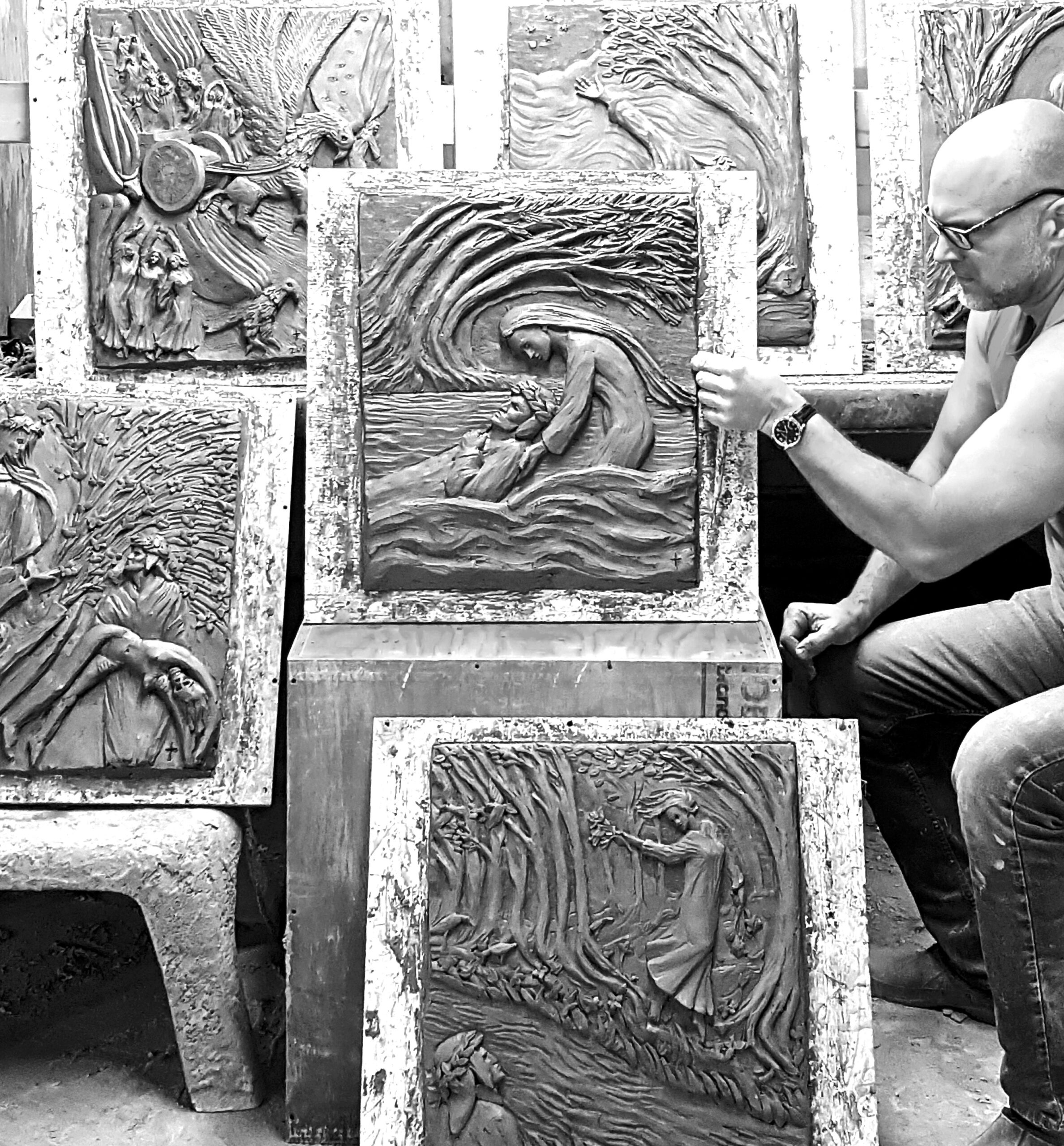
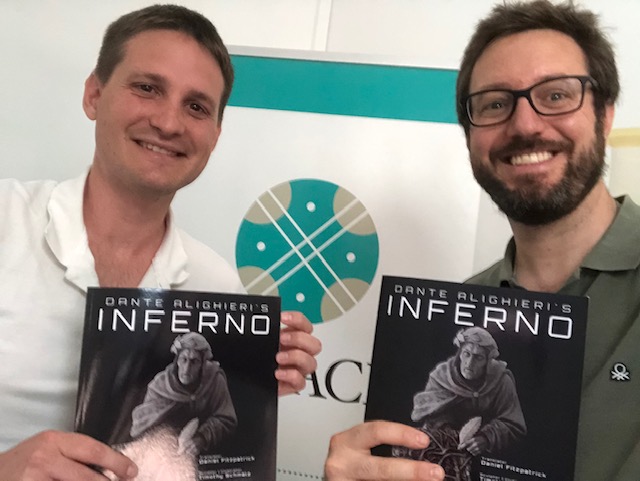
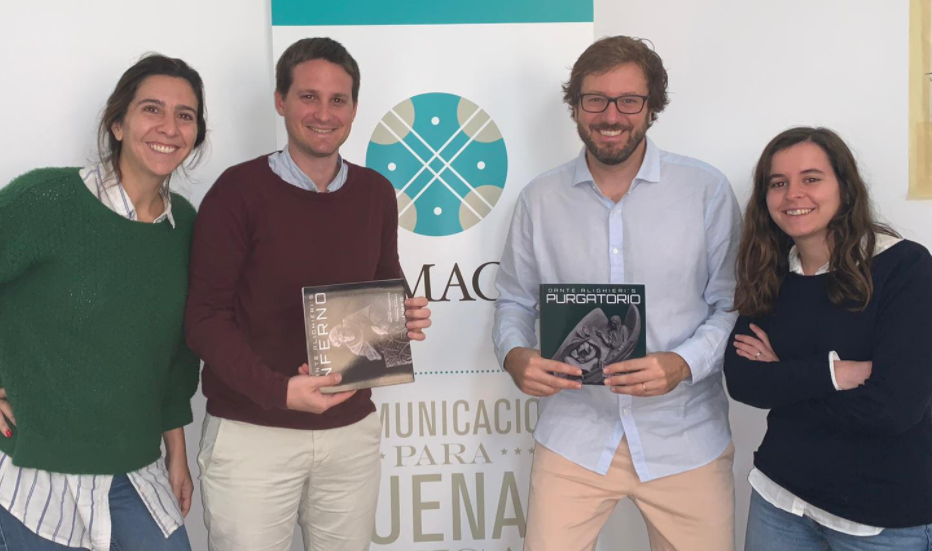
In the midst of the journey of our life
I returned to myself through a shadowy wood,
for the right way was barred.
Ah! How very hard it is to tell
the way of that wood, so savage and harsh and strong
that to dwell in it renews the fear!
Death itself can barely be more bitter.
But to tell you all the good I found,
I will speak of the other things I saw.
How I came to that place I can’t well recount,
filled with sleep as I was at that point
where I forsook the fine way.
But then I found the foot of a hill,
there where that valley that pierced
my heart with fear had failed.
I looked to the height and saw its shoulders
clothed in the early rays of that planet
that takes us straight through every road.
And now the fear that had burned
in the lake of my heart through that night
I’d passed with such distress was quieted a bit.
And as one who, with labored breathing
escapes from the fury of the sea to the shore
and turns to gaze on the perilous water,
so my soul, still fleeing,
turned around to marvel more at the pass
no living person ever left.
Then when I’d composed my weary body a bit,
I took up the way through the desert slope again,
my firm foot always the lower.
And look! Close to the start of the steep
was a leopard, light, so swift,
and covered with a spotted pelt;
and it refused to turn from me
and so much impeded my path
that I was often turned to descend.
It was the time of the morning’s return,
and the sun was climbing with those stars
that were with him when divine love
first moved those beauties;
so that despite that beast in its gaudy pelt
there still was cause to hope
in the time and in the sweet season;
but hardly had the fear left
when the sight of a lion appeared to me.
He seemed to come against me
with his head held high and with rabid hunger;
even the air appeared to tremble.
And a wolf, full of all longing,
who seemed a carcass in her thinness
and makes many live in wretchedness,
this so yoked my soul with the weight
of the fear that rushed up at the sight of her
That I lost the hope of the summit.
And as much as the one who soars in his gains
when the time comes that he must lose them
begins to weep in all his thought,
so did the pacing beast make me,
that, coming against me, little by little
repelled me to where the sun is silent.
While I retreated to the low ground,
there, ahead, a faint figure was shown to my eyes
through the long silence.
When I saw him in that great desert
I cried out to him, “Have mercy on me,
whatever it is you are, whether shade or certain man.”
He replied: “Not a man, though man I was,
and my parents were from Lombardy,
both Mantuans by birth.
I was born beneath Caesar, though it was late,
and I lived in Rome under good Augustus
in the time of the false gods.
I was a poet, and I sang that just
son of Anchises who came from Troy
then when proud Ilium was burned.
But why are you returning to such suffering?
why do you not ascend the delightful mountain,
the source and cause of all joy?”
“Are you then Vergil, that fountain
pouring forth so rich a flow of speech?”
I answered him, my brow clouded with shame.
“O honor and light of other poets,
let the long study and the great love
that made me so search your work avail me.
You are my master and my maker,
you alone are him from whom I took
the lovely style that made my fame.
You see the beast from whom I turned;
protect me from her, famous sage,
from her who makes my blood and pulses falter.”
“For you there is another way to be taken,”
he said on seeing me weeping,
“if you wish to escape this savage place;
since this beast by whom you cry
allows no man to pass her way
but harries him so harshly as to kill him;
and her nature is so wicked and fierce
that her yearning want is never appeased
and after the feast is more famished than before.
many are the beasts by which she mates,
and still there will be more before the hound
should come to make her die hatefully.
This hound won’t eat of lands or riches
but of wisdom, love, and strength,
and his birth will be between felt and felt.
He will be the salvation of lowly Italy
for which the virgin Camilla, Euryalus
and Turnus and Nisus died by iron.
this hound will hunt her in every village,
until he’s returned her to the fire
from which the primal envy loosed her.
Thus for your sake I think you ought
to follow me, and I will be your guide,
and I will lead you from here through an endless place;
there you’ll hear the desperate shrieks,
you’ll see the ancient suffering souls,
crying out in their second death;
and you will see those content
in the flame for hope of coming among the blessed,
whenever that should be.
If then you should wish to rise to those,
you’ll find a worthier soul than I:
I’ll leave you with her in my parting;
for that emperor who reigns on high,
because I was a rebel to his law,
wills not that I should come into his city.
He reigns in every part and there he rules,
there is his city and the high seat;
oh, happy is he elected to be there!”
And I to him: “Poet, I entreat you
by that God you knew not,
that I might flee this evil and worse,
guide me to that city you’ve described,
that I might see St. Peter’s door
and those you call so sorrowful.”
And so he moved on, and I came close behind.